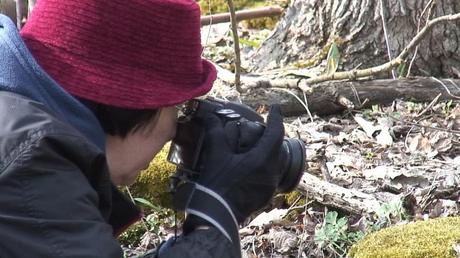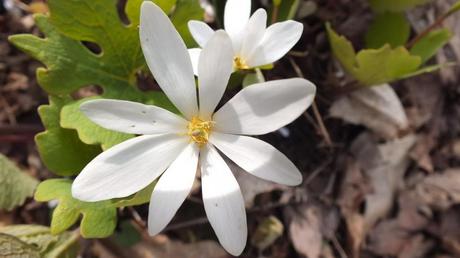
A sure harbinger of spring is when the forest floor erupts into a brilliant carpet of Bloodroot (Sanguinaria canadensis). These fragile spring flowers belong to the poppy family.
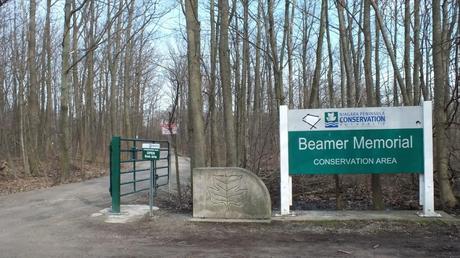
This past week, Bob and I drove to the Beamer Memorial Conservation Area in Grimsby, Ontario, for our first visit ever. The protected area came highly recommended by our daughter as a destination for hiking that included beautiful views. She had discovered it whilst on a bicycle excursion to the area.
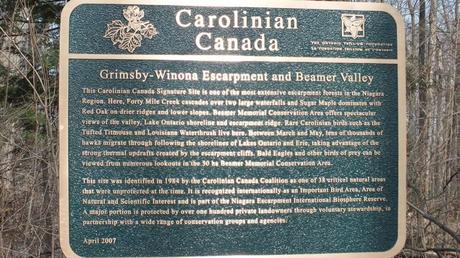
Beamer Memorial Conservation Area is one of the most extensive escarpment forests in the Niagara Region.
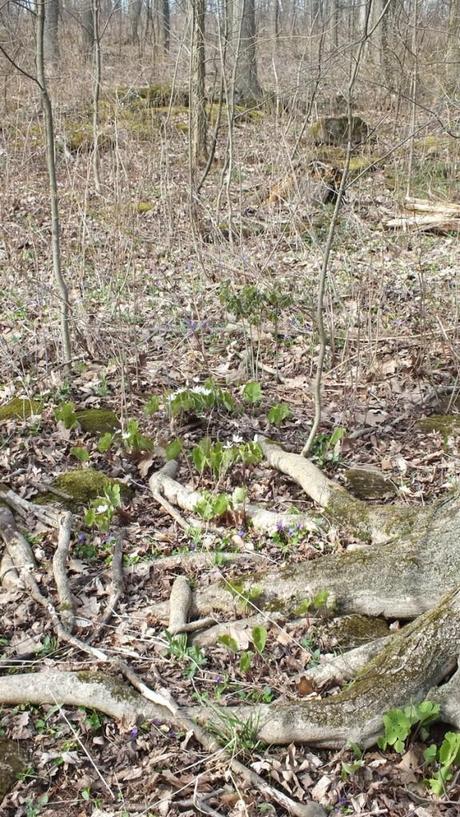
As Bob and I walked along the forest trails, we began seeing patches of bright green leaves poking up through the otherwise brown leaf litter on the forest floor.
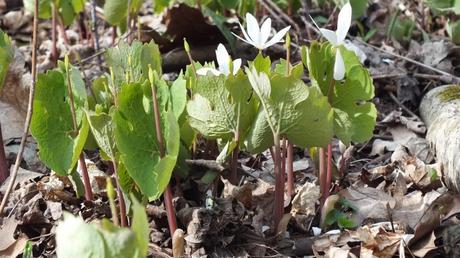
On closer inspection, we found the plants to be the native Bloodroot or Bloodwort, so called because of the red sap or juice stored in the rhizome below the surface of the soil. This red liquid was once used by indigenous people to dye baskets and clothing, as well as for war paint and insect repellent. The generic name, from the Latin sanguinarius, means bleeding.
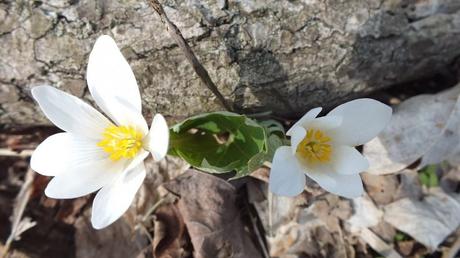
The single Bloodroot leaf and flower each rise on a separate stem, and at first, the leaf completely embraces the flower bud. The clear, white, many-petaled blossom sometimes opens before the leaf has completely unfolded itself.
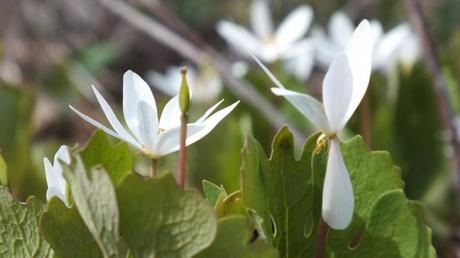
The leaves of Bloodroot are large, round and deeply cleft. This fragile spring flower develops and rises from the center of its curled leaf, opening in full sun, and closing at night. The petals have a short life and fall off to reveal the developing seed pod.
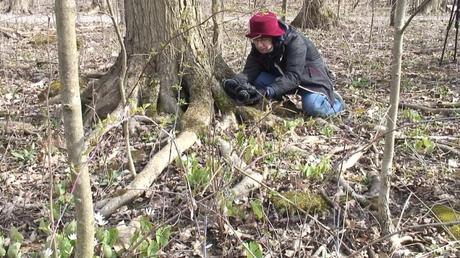
Various other plants captured our interest along the hiking trails, but in some cases, Bob and I had to look very closely to see them.
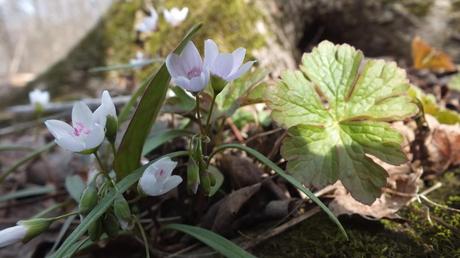
Tucked into a sheltered crevice at the base of a tall maple tree, I found some tiny, delicate Spring Beauty wildflowers. These plants are one of the most common native perennials in the eastern part of North America. They are low-growing wildflowers that grow in a star-like cluster of five white to pale pink flowers.
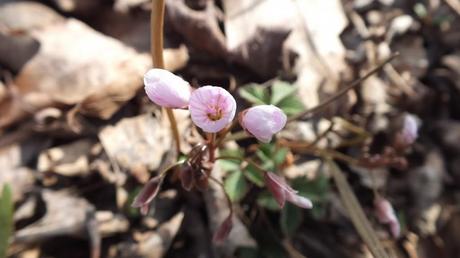
It kept Bob and I busy that afternoon checking out all the burgeoning new spring growth.
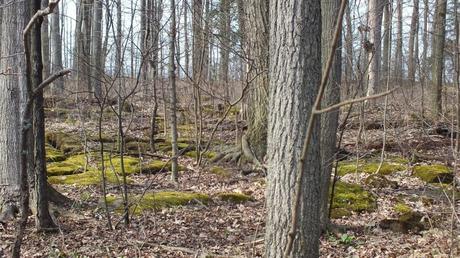
Sun-dappled fresh green moss liberally covered exposed surfaces of limestone slabs which served to remind us of the escarpment upon which we were hiking.
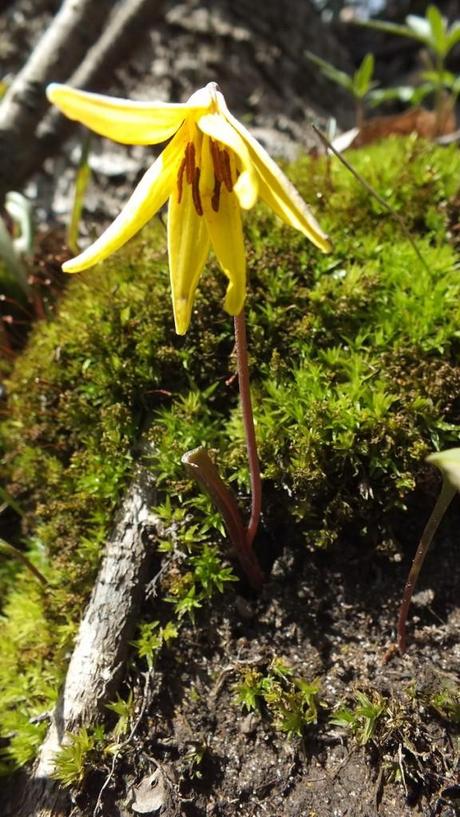
Poking up through the dense mat of vibrant green moss were numerous Trout Lilies (Erythronium americanum). These perky spring flowers are also known as Adder’s Tongues or Dog-Toothed Violets, although they don’t belong to the violet family.
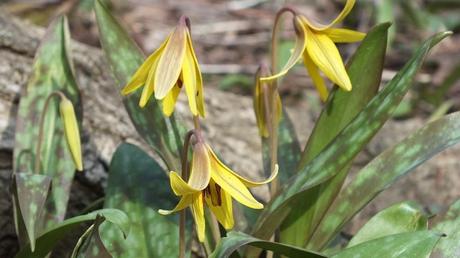
Trout Lilies come by that particular name because the mottled pattern on their leaves resembles that of the skin pattern on a Brook Trout.
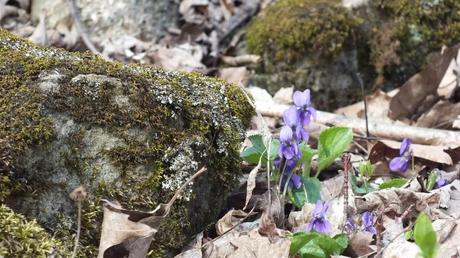
Another sweetly fragrant spring flower that was already blooming was Northern Blue Violet (Viola septentrionalis).
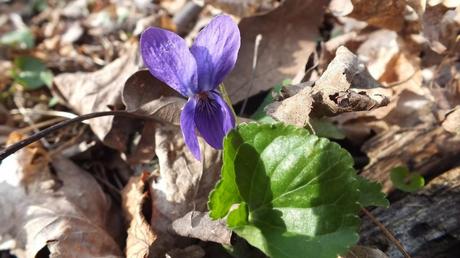
The lower petals of this flower are bearded, as you can see in my photo. The erect flower stem droops slightly, as if bending its head towards the ground. Perhaps that is why the flower is associated with modesty and decency.
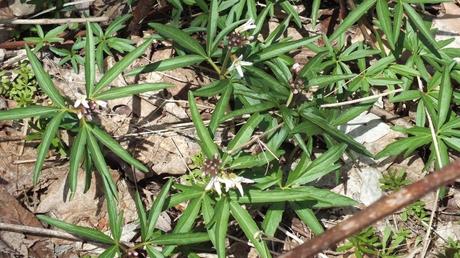
There seemed to be no end of fascinating plants alongside the walking trails at Beamer Memorial Conservation Area. Above, we see some examples of Cut-leaf Toothwort (Cardamine concatenata). Its delicate beauty makes it anything but common.
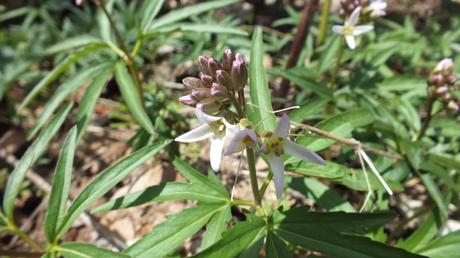
The Cut-leaf Toothwort plants were between 6-12 inches tall and were topped with a cluster of small 4-petaled pink or white flowers. These stand above a whorl of leaves that are deeply divided and coarsely toothed. Indigenous people once chewed the roots of Toothwort to alleviate toothaches, suggesting another possible explanation for its common name.
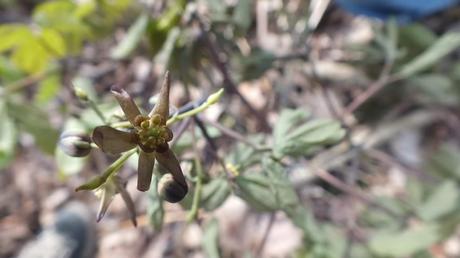
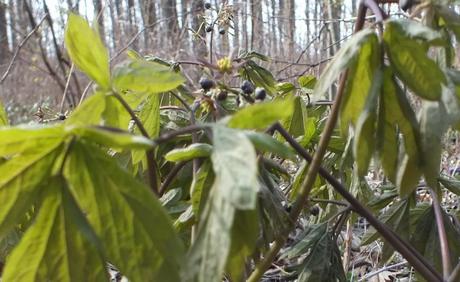
That afternoon, I photographed a couple of other plants bearing spring blossoms, seen above, but I have been unable to identify them. I wondered if any of our followers might be able to enlighten me as to their names so that I can broaden my knowledge in this area.
Checkout some of our other plant & gardening posts

Tulips at Keukenhof Gardens, Holland
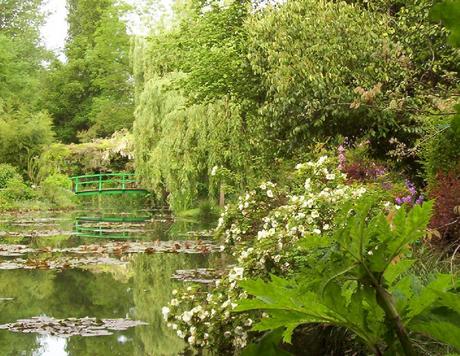
Giverny and the Water Pond: Part of Monet’s Legacy
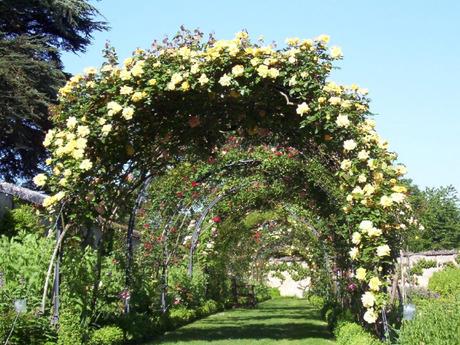
The Award-winning Gardens at Château de la Bourdaisière, France
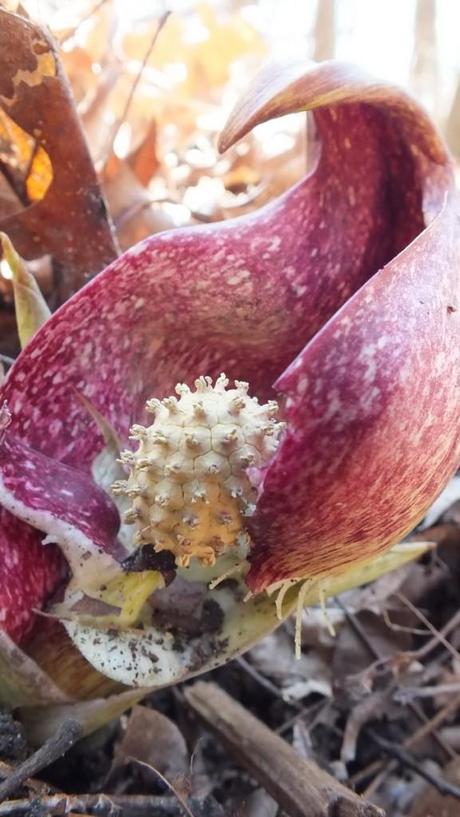
Skunk Cabbage Blooming in Cootes Paradise – A Sure Sign of Spring
Frame To Frame – Bob & Jean
Spring Wildflowers at Beamer Memorial Conservation Area – Grimsby is a post from: Frame To Frame
